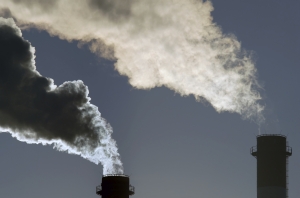MELBOURNE, July 4, 2018 – The Australian carbon price could grow to $35/tonne in 2030 following the implementation of the National Energy Guarantee (NEG) – double current levels – as other sectors of the economy brace for larger emissions cuts to reach Australis’s 2030 target, said analysts at energy advisory firm, RepuTex.
According to RepuTex, should a 26 per cent NEG be introduced for the electricity sector, national emissions would reach 10 per cent below 2005 levels by 2030, leaving a shortfall of around 500 million tonnes to meet Australia’s national emissions reduction target.
To “fill the gap” to the target, RepuTex forecasts that the Australian carbon price may rise to $35/t in 2030, with industry – notably high emitting energy, materials and industrial companies – bearing the brunt of the higher abatement cost.
“With the electricity sector locked into the NEG, other sectors – particularly large energy, materials and industrials facilities – will be called on to fill the gap to 2030”, said Hugh Grossman, Executive Director at RepuTex.
“As this occurs, we expect carbon contract prices to rise to $35/t in 2030 – more than double current levels – behind the need for more expensive abatement from industry”, he said.
According to RepuTex, non-electricity sectors would be required to contribute around half of Australia’s emission reduction to 2030, for a total cost of around $10 billion, as the industrial sectors seek to purchase carbon credits to offset high internal abatement costs.
“Unlike the electricity sector – which has a range of low-cost emissions reduction opportunities available to it – abatement is far more expensive for large energy, materials and industrials facilities”, said Mr Grossman.
“We expect prices to increase considerably from 2020, in line with the need for more expensive abatement to be triggered, and greater demand for offset buying. This will lead to a higher sustained price path over time, with industry expected to contribute around half of all emissions reductions to 2030”, he said.
“In relying heavily on external abatement sources, such as Australian Carbon Credit Units (ACCUs), we see the cumulative cost to industry at around $10 billion to meet Australia’s 2030 target.”
While industrial companies may be relied on to meet the shortfall to Australia’s 2030 target, RepuTex notes that the electricity generation sector would largely escape high costs.
“We continue to project that ‘business as usual’ wind and solar contracting and construction commitments will exceed the electricity sector’s 26 per cent target”, said Mr Grossman.
“The NEG will therefore be relatively light touch, with minimal emissions reduction costs under the scheme”, he said.
According to RepuTex, other sectors of the economy may not be so lucky.
“Other sectors will ultimately need to find a balance between reducing industrial process emissions and investing in external reforestation projects”, said Mr Grossman.
“We expect to see prices increase in order to trigger this more expensive abatement, with the value of the offset market growing to be more than $2 billion in the year 2030, or around $10 billion through to 2030” he said.
INTERNATIONAL PRICES SET TO RISE BEYOND A$50 BY 2030
Despite the high price path, RepuTex expects Australian carbon offsets to be significantly cheaper than their international counterparts, with carbon prices expected to grow in key international markets such as Europe and California.
“While international carbon units are historically perceived as ‘low cost’, we see carbon prices in Europe and California growing beyond A$50 by 2030 as those markets seek to meet increased emissions reduction commitments” said Mr Grossman.
“This type of forward curve is the new normal for international prices, as more abatement is needed to meet stricter targets”
“In Australia, we expect market participants to look five years ahead in planning abatement and minimising total costs, so policy certainty – for all sectors – is quickly becoming an issue.”
“This is the elephant in the room that policymakers will struggle to avoid much longer”, he said.
MEDIA CONTACTS
RepuTex spokespeople are available for comment. Please contact RepuTex Melbourne on +61 3 9600 0990.










